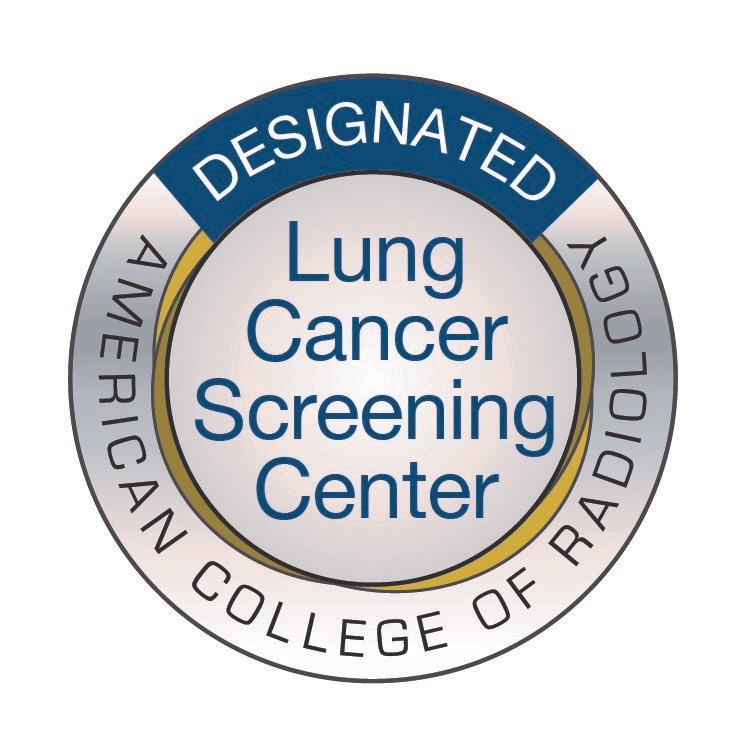Prevention, Screenings & Diagnosis
As part of our cancer prevention services, we offer a variety of cancer screenings for you to monitor your health and hopefully catch any signs of cancer in an early stage.
Colon Cancer Screening
According to the National Cancer Institute, colorectal cancer is the second leading cause of death from cancer in the United States. Yet, 90% of colon cancer cases can be cured when found and treated at an early stage, so regular screenings are important.
You should begin routine screenings, at age 45, as the risk of developing colorectal cancer increases with age. Polyps found and removed early during a colonoscopy screening can prevent the formation of colon cancer. Some people are at a higher risk and should be screened earlier, including those with a personal or family history of inflammatory bowel disease, polyps, or ovarian, endometrial or breast cancer.
Fecal Occult Blood Test (FOBT)
A FOBT is used to find occult or hidden blood in feces. A positive test does not always mean cancer is present. The FOBT can miss some cancers, so it should not be solely relied on for colorectal cancer screening. You are given a screening kit and instructions on how to take a stool or feces sample at home. The kit is then returned to Silver Cross Hospital for testing. Request a FREE Colon Cancer Screening Kit (FOBT).

Flexible Sigmoidoscopy
A slender, hollow, lighted tube, or sigmoidoscope, is connected to a video camera and inserted into the colon through the rectum and lower part of the colon, known as the sigmoid colon. The doctor looks at the inside of the rectum and sigmoid colon for cancer and/or polyps, which are small growths that can become cancerous. If a premalignant polyp is detected during sigmoidoscopy, you should have a colonoscopy to screen the remainder of the colon.
Colonoscopy
The colonoscopy is considered the gold-standard test for finding colon cancer. This is the most thorough exam. A colonoscope is similar to a sigmoidoscope, except the tube is much longer and allows the doctor to see the lining of the entire colon. It is inserted into the rectum while the patient lies on his or her side. In our Advanced Endoscopy Center, patients are given a sedative to make them feel relaxed and sleepy during the screening, which takes 15-30 minutes. Polyps or lesions that are found are usually removed and sent to our Laboratory for examination.
Double Contrast Barium Enema
This is an X-ray procedure that uses a chalky liquid substance called barium to visualize the interior of the colon and rectum. It is less sensitive than colonoscopy in detecting lesions and polyps and rarely used for screening.
Endoscopic Ultrasound (EUS)
Endoscopic ultrasound (EUS) is a screening technique if you are high-risk with a family history of colon cancer. To perform this minimally invasive endoscopic technique, doctors use a thin, flexible tube equipped with miniature cameras to view tissue in the gastrointestinal tract.
PET/CT Scan
Positron Emission Tomography–Computed Tomography (PET/CT) is a medical imaging technique using a device which combines a PET scanner and a CT scanner so that images acquired from both devices can be taken sequentially, in the same session, and combined into a single superposed image. The imaging obtained provides physicians with information about the body’s metabolic activity and exact location of disease. The technology also helps physicians monitor patients’ response to treatment to ensure it is working.
Breast Cancer Screening
The American Cancer Society recommends screening for early breast cancer detection for women without any breast symptoms.
 Breast Self-Exam
Breast Self-Exam
You should start Breast Self-Exam (BSE) in your 20s and report any breast changes to your physician or health professional right away.
Clinical Breast Exam (CBE)
You should get a Clinical Breast Exam (CBE) in your 20s and 30s as part of a regular health exam by a physician or health professional preferably every 3 years to look for abnormalities in size or shape, or changes in the skin of the breasts or nipples. Starting at age 40, you should have a CBE by a health professional every year along with a screening mammogram. This gives you the opportunity to discuss with your doctor any changes in your breasts, early detection testing, and factors in your history that might make you more likely to have breast cancer.
Mammogram
Widespread use of screening mammograms has increased the number of breast cancers found before they cause any symptoms. At the Silver Cross Center for Women’s Health, we offer full-field 2D digital mammography and 3D mammography or breast tomosynthesis. A physician’s order is not required for a screening mammogram. Schedule an appointment online or call (815) 300-7076. The American Cancer Society recommends women age 40 and older have a screening mammogram every year and should continue to do so for as long as they are in good health.
Low-Dose CT Lung Cancer Screening
According to the American Lung Association, lung cancer is the leading cause of cancer death in the U.S. and remains a silent epidemic.

 Lung Cancer Screening is a quick, painless, and non-invasive low-dose CT scan that we offer. The screening can detect nodules or spots on your lung that might be early indicators of lung cancer. It takes only a few minutes to have a scan which can potentially save your life.Low-Dose CT Lung Cancer Screening can reduce the lung cancer death rate by 20%. At this time, only low dose CT scans are recommended for screening; chest X-rays are not effective.
Lung Cancer Screening is a quick, painless, and non-invasive low-dose CT scan that we offer. The screening can detect nodules or spots on your lung that might be early indicators of lung cancer. It takes only a few minutes to have a scan which can potentially save your life.Low-Dose CT Lung Cancer Screening can reduce the lung cancer death rate by 20%. At this time, only low dose CT scans are recommended for screening; chest X-rays are not effective.
Are you a Candidate? If you meet the following criteria and do not exhibit typical symptoms of lung cancer (i.e. cough, chest pain, weight loss) you maybe at high risk of getting lung cancer and are a candidate for this screening.
Screening Criteria:
- 55 to 77 years old
- smoked at least a pack a day for 30 years or two packs a day for 15 year
- and a current smoker or have quit within the past 15 years
- generally in good health
Screening Cost
The Center for Medicare and Medicaid Services covers a lung cancer screening for eligible individuals ages 55 to 77 who are enrolled in Medicare or Medicaid. Most private insurance plans cover lung cancer screening for eligible individuals however, patients should consult with their insurance provider about coverage.